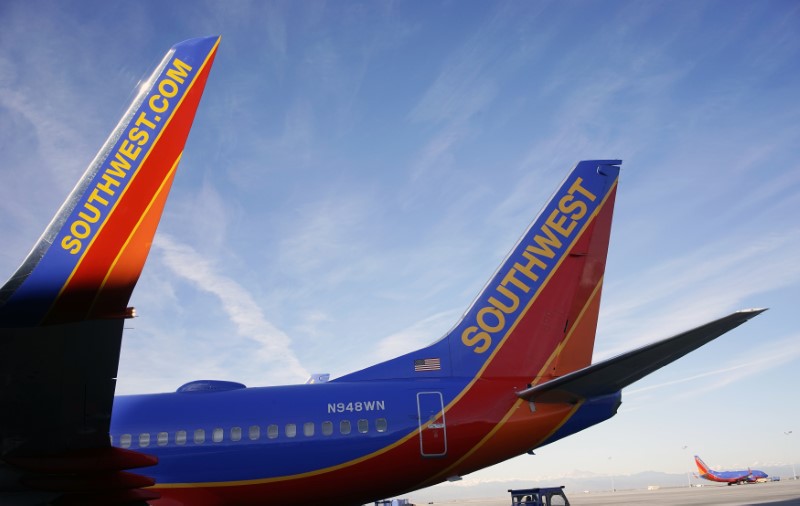This post was originally published on this site

Jet fuel is one of the largest expenses for the airline industry, and fluctuations in its price can have a significant impact on airlines’ operating costs and profitability.
LUV’s new estimates project economic fuel costs per gallon to range from $2.70 to $2.80, compared to the earlier forecast of $2.55 to $2.65.
As a result, LUV shares fell nearly 4.5% in early Wednesday trade. UAL declined 1.2% while ALK shares slipped just 0.3% after the company narrowed its Q3 guidance.
In terms of booking trends, Southwest noted that August 2023 close-in leisure bookings were at the lower end, with some modest impact due to seasonal trends.
Still, overall leisure demand and yields remain healthy. Southwest Airlines still expects a modest year-over-year sequential improvement in corporate travel during the third quarter.
The company has faced challenges related to extreme weather disruptions, including approximately 1,400 cancellations resulting from events such as hurricanes Hilary and Idalia, the Maui wildfires, and summer storm activity.
Despite these disruptions, Southwest Airlines has not made significant changes to its 2023 capacity plans compared to its previous guidance. Furthermore, it does not anticipate that the weather-related disruptions will have a substantial impact on its third-quarter results.
Bank of America analysts slashed the price targets for several airline stocks on Tuesday. They cited the increase in jet fuel costs as a key reason behind the downgrade of estimates and price targets.
“With the fall conference season beginning, we see steady to slightly better revenue trends excluding the Hawaii wildfire impact, but higher jet fuel costs should lead companies to lower margin and EPS outlooks,” the analysts wrote in a client note.

